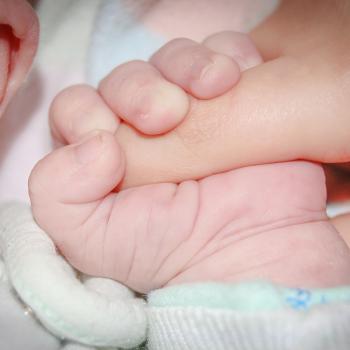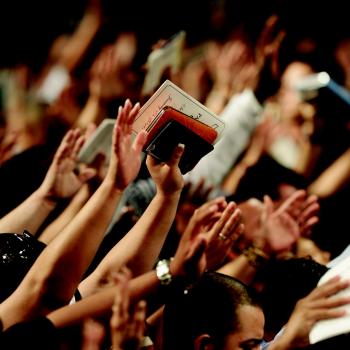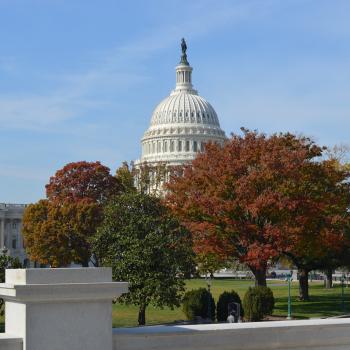Where are the strong Christian voices, standing on what is biblically right, rather than politically expedient?
That’s a question the church in the United States needs to be asking herself.
When did our witness to the world become secondary to political gain?
This is a theme that I’ve visited often in my work. Anyone who has read my writing for any length of time can affirm this.
I hit on this because it is simply that important, and I didn’t recognize it myself for far too long, unfortunately.
The church has often failed to be up front in calling out the more prolific evils in the world. On any given Sunday, you may hear from the pulpit condemnation of the sins of man, as it pertains to the Word of God. If you’ve got a really spirit-filled pastor, you may hear the accompanying message of grace, as we seek to draw the lost to new life in Christ.
It didn’t begin with Donald Trump. From the issue of slavery to even Hitler’s march through Europe, American Christians dragged their feet about responding from the pulpit.
Were those issues too political? Or was the church complicit?
That’s a discussion for another day. What needs to be addressed in the here and now, however, is the rise of white nationalism under Donald Trump’s presidency.
To begin, I’m not going to blame Trump for everything white nationalists do. I’m not even going to call our dull witted president a white nationalist. That would actually require he commit himself to an ideology that encompasses more than simply his own, personal interests.
What I will say is that his rhetoric acts as the perfect siren song for the hate-filled and gutless racists that make up the white nationalist movement.
Is Donald Trump a racist?
I don’t know the man’s heart, but by his fruit – or lack thereof – I am sure his heart is far from God.
From reported past comments and documented court cases of discrimination brought against his family business, we know he harbors bias towards certain ethnic populations.
A week ago, the president turned his ire on Democrat Representative Elijah Cummings, as well as his district community, Baltimore, Maryland.
In what can only be described as vicious (and typical of Trump’s un-Christian nastiness), the president tweeted out that Baltimore was “rat infested” and that no human being would want to live there.
That’s what set this attack above the usual petty Trump attack. Human beings do live there, so what was he saying about them?
The condemnation from the left was swift and scathing. That was to be expected.
Even some corners from the right moved to distance themselves from the comments, recognizing that there are some lines that you don’t cross.
Personally, I was glad to see there were still some members of the GOP with a conscience.
Not enough of them stepped forward, nor was their stand strong enough.
But what about the church? What about the church “leadership” who have been so vocal in supporting Trump? Would they stand with the president or on the grace and civility we’re called to display in honor of our God?
“He does not judge people by the color of their skin,” said the Rev. Robert Jeffress, pastor of the Southern Baptist megachurch First Baptist Dallas and a frequent guest at the White House.
“He judges people on whether they support him,” Jeffress said. “If you embrace him, he’ll embrace you. If you attack him, he’ll attack you. That’s the definition of colorblind.”
First of all, that, in itself, is so very wrong and not the behavior anyone should expect from the nation’s president. He was elected to lead a union of many people, from many backgrounds and varied life experiences.
Second of all, how petty, immature, and intellectually stunted must he be, a man in his 70s, lashing out like a child? Why is this acceptable to these Trump-friendly church leaders?
Some church leaders, however, did feel the need to call out President Trump’s hurtful words.
“Enough of the harmful rhetoric that angers and discourages the people and communities you are called to serve,” the leaders wrote.
A similar message came the same day from leaders of the Washington National Cathedral, designated by Congress as a non-denominational National House of Prayer.
“As leaders of faith who believe in the sacredness of every single human being, the time for silence is over,” said a statement from three cathedral leaders. “We must boldly stand witness against the bigotry, hatred, intolerance, and xenophobia that is hurled at us, especially when it comes from the highest offices of this nation.”
They further challenged Trump’s evangelical base to step up and condemn what they saw as a racist attack.
Of those they called out, perhaps the most disappointing is Franklin Graham, son of America’s pastor, the late Billy Graham.
Graham suggested the word “racism” had been devalued, before echoing the attitude of Jeffress and other Trump-friendly pastors.
“The left has weaponized it and uses it against their opponents,” he said in a telephone interview Thursday. “The president is not afraid to go after anyone — their color has nothing to do with it. It’s the person’s ideology and politics.”
Graham contended that Trump was justified in his criticism of Cummings’ district encompassing much of Baltimore.
“The president is right — it should be investigated,” Graham said. “Billions of federal dollars have been given to this area. It certainly hasn’t helped the people of Baltimore.”
Nothing said there lines up with a godly response. How does this draw nonbelievers to hear the message of the cross, if Graham is so quick to condemn an entire community, while defending the one who insulted them?
Alveda King, niece of Martin Luther King, Jr. went to bat for Trump, declaring that he was “not racist.”
Citing her family’s credo, King said, “When we dealt with racism, it was in prayer, not condemnation.”
“I don’t have to pray for President Trump for being a racist, because he’s not,” she said. “He’s not colorblind —he can see and appreciate ethnic differences. But he’s going to treat everybody with the same regard.”
The Southern Baptist Convention leadership have declined to wade into the fray, thus far.
Their strange silence stands side by side with the response from other segments of the faith community.
Another conservative denomination, the Church of Jesus Christ of Latter-day Saints, this week declined to comment on the racial discussion triggered by Trump’s recent tweets. Spokesman Eric Hawkins instead cited a July 21 speech by church President Russell M. Nelson at the NACCP convention in Detroit, where he urged people to love one another no matter their differences.
“We are all connected, and we have a God-given responsibility to help make life better for those around us,” Nelson said. “We don’t have to be alike or look alike to have love for each other. We don’t even have to agree with each other to love each other.”
All of this is true, but if you listen to “leaders” like Jeffress and Graham, you have to be a Trump loyalist, or you can expect to be attacked and demeaned. The notion of “love one another” is foreign, at best.
Where is the grace?
Most importantly, how does this response make the church appear to those who need to see us as different than the rest of the dark and harsh world?










